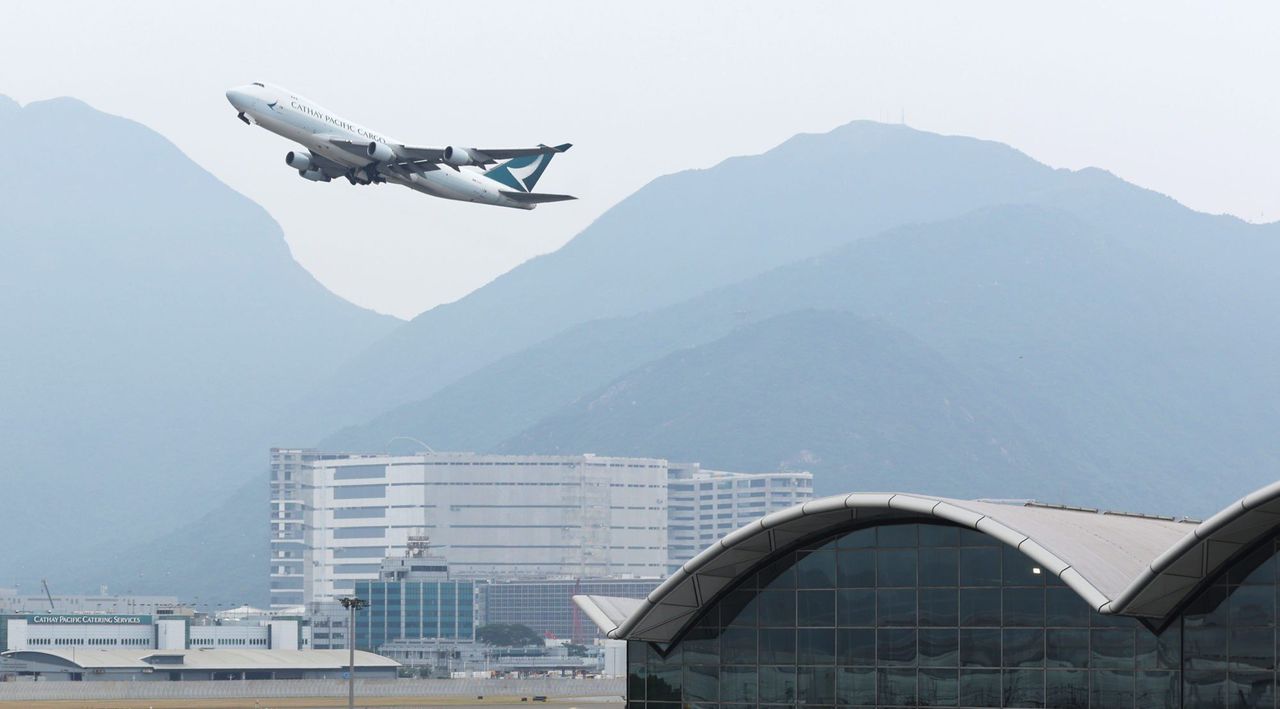Hong Kong News

Hong Kong air industry asks for non-resident workers to deal with staff shortage
Almost 100,000 vacancies are estimated to be available in Hong Kong’s aviation sector and industry figures have suggested recruitment of foreign workers as a stopgap measure to deal with the labour shortage.
Legislator Frankie Yick Chi-ming, who represents the transport sector, on Thursday said the airport alone needed about 25,000 extra staff to get back to full capacity.
“[With the shortage], airline services and passenger traffic have only returned to 60 per cent and 40 per cent of the pre-pandemic level respectively, which affects the progress of its recovery,” he said.
“Along with the completion of the third runway, we estimate the industry will need another 70,000 workers.”
 An estimated shortfall of about 100,000 staff will threaten the airport’s recovery, industry insiders have warned.
An estimated shortfall of about 100,000 staff will threaten the airport’s recovery, industry insiders have warned.
Industry representatives said the vacancies covered a wide spectrum of job types, such as aircrew, baggage handlers, cabin cleaners, aircraft maintenance workers and ground staff.
Sector representatives suggested foreign or mainland Chinese workers as a short-term measure to cope with the problem.
They said numbers could be made up by adding a quota of work visas, simplification of application procedures and allowing qualified workers from the mainland to work in the airport’s restricted area without entering Hong Kong.
“One advantage of the airport is that we can enter the restricted area directly, either by boat to the airport’s own port or using the Hong Kong-Zhuhai-Macau Bridge, much like a cross-border bus,” Yick said.
“We hope the Hong Kong government can discuss with mainland authorities whether they can use a simpler way to get through clearance, similar to cross-border students.”
The new runway, expected to be completed next year, is said to be equivalent to operating a new airport and will be able to handle 30 million more passengers a year.
The government imposed stringent Covid-19 pandemic measures after the coronavirus hit the city three years ago, which took a major toll on airport operations and battered the tourism industry.
The Airport Authority last year estimated that around 53,000 staff were employed at the airport, compared with 78,000 before the pandemic.
Other industries such as construction, catering and logistics have also faced severe staffing problems and appealed for extra labour to be brought in.
The city lost 94,000 employees in 2022, the biggest decrease in its working population since records began almost four decades ago.
Hong Kong lifted all restrictions on overseas arrivals and resumed quarantine-free travel last December, which allowed the tourism industry to start its recovery.
But the aviation industry has found it difficult to tempt employees who left during the pandemic back to their old jobs.
“They have already settled down in companies located in the city area outside the airport. In the city area, the commuting time is usually much shorter,” said Christopher Chung Wai-ming, general manager of aviation services firm Ground Support Engineering.
“Some workers may need to spend 1½ hours to travel to the airport. For example, it takes 1½ hours to travel from North Point to the airport and another 1½ hours to return. It can be quite distressing to spend three hours commuting every day.”
Other industry players admitted it was difficult to offer attractive salaries under the pressure of high operating costs.
Walter Li Chun-ting, chairman of the Airline Operators’ Committee, said every airport ground operations company faced an average 30 to 40 per cent manpower shortfall.
“When the number of flights has reached 70 per cent or more of the pre-pandemic level, the shortage will exceed 50 per cent,” he predicted.
“The staffing problem will put more pressure on the entire airport operation and accelerate staff turnover, creating a vicious cycle.”
Hong Kong Airline Service Providers Association president Vivien Lau Man-yee said she was worried service quality at the airport would be affected if the labour shortage continued.
“All of our colleagues are suffering fatigue from overworking. We are very worried that in the long term, flight safety and security may be undermined by their work fatigue, which is something we never wish to see,” she warned.











